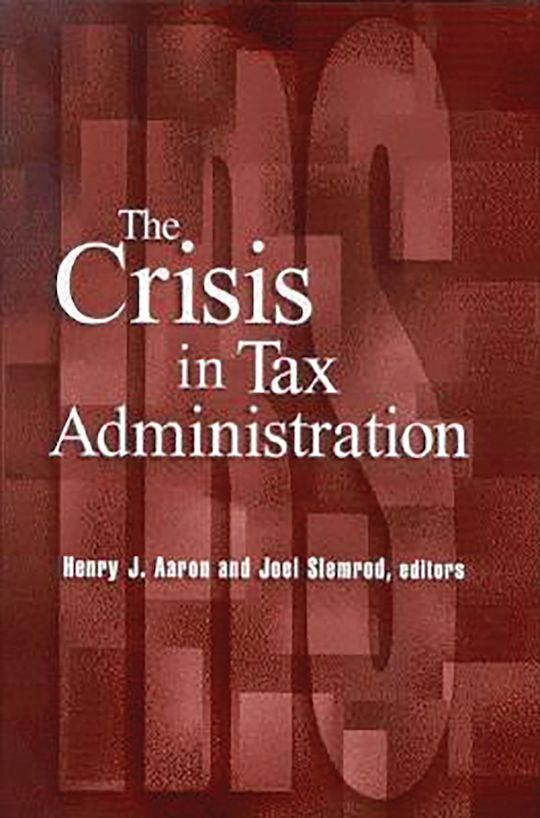- Home
- ACADEMIC
- Politics & International Relations
- Public Management, Administration and Policy
- The Crisis in Tax Administration
The Crisis in Tax Administration
The Crisis in Tax Administration
You must sign in to add this item to your wishlist. Please sign in or create an account
Description
People pay taxes for two reasons. On the positive side, most people recognize, even if grudgingly, that payment of tax is a duty of citizenship. On the negative side, they know that the law requires payment, that evasion is a crime, and that willful failure to pay taxes is punishable by fines or imprisonment. The practical questions for tax administration are how to strengthen each of these motives to comply with the law. How much should be spent on enforcement and how should enforcement be organized to promote these objectives and achieve the best results per dollar spent? Over the last few years, the U.S. Congress has restricted spending on tax administration, forcing the Internal Revenue Service to curtail enforcement activities, at the same time, that the number of individual filers has increased, tax rules have become more complex, and more business have become multinational operations. But if too many cases of tax evasion go undetected and unpunished, those who may have grudgingly paid their taxes may soon find it easier to join the scofflaws. These events in combination have created a genuine crisis in tax administration. The chapters in this volume evaluate the capacity of authorities to enforce the tax laws in a modern, global economy and examine the implications of failing to do so. Specific aspects of tax law, including tax shelters, issues relating to small businesses, tax software, role of tax preparers, and the objectives of tax simplification are examined in detail. The volume also builds a conceptual basis for future scholarship, with regard not only to tax administration, but also to such fundamental questions as whether taxpayers respond mostly to economic incentives or are influenced by their experiences with the filing process and what is the proper framework for evaluating the allocation of resources within the IRS.
Product details
| Published | 20 May 2004 |
|---|---|
| Format | Ebook (PDF) |
| Edition | 1st |
| Extent | 402 |
| ISBN | 9780815796565 |
| Imprint | Brookings Institution Press |
| Publisher | Bloomsbury Publishing |


































